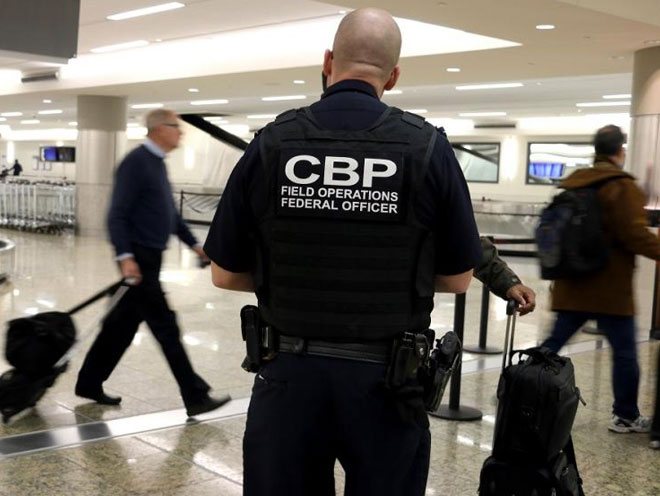U.S. Customs and Border Protection (CBP) Office of Field Operations officers and import specialists enjoyed presenting a counterfeit product outreach with travelers at Atlanta Hartsfield-Jackson International Airport (ATL) on Thursday.
A large table display of seized merchandise at ATL’s International concourse afforded travelers an opportunity to speak with CBP officers, look over the items and ask questions about counterfeit products.

“Having CBP officers engage travelers one on one about counterfeit merchandise is valuable to educating the community,” said Cary Davis, CBP Port Director for the Area Port of Atlanta.
“Counterfeiting harms consumers and by allowing the public to see, understand and speak to an officer regarding these products, CBP increases the public’s understanding regarding the risks these products pose, not only to our economy, but to the health and safety of the consumer.”
This educational awareness campaign for international travelers, called attention to the growing impacts of purchasing counterfeit goods, including the loss of American jobs and the support of criminal activity.
Last year CBP seized more than $1.3 billion in counterfeit goods.
Counterfeit products pose criminal, financial, and consumer safety risks for the United States and its citizens.
For example, the purchase of counterfeit goods often supports the funding of criminal enterprises and activity, such as money laundering, smuggling, and trafficking in illegal guns and drugs.
(Learn More about how economic and social impact of buying counterfeit goods. Courtesy of ICE and YouTube)
Counterfeit products also have a large impact on the prosperity of the U.S. economy.
When consumers purchase these counterfeit items, legitimate companies lose revenue, translating to lost U.S. jobs and profits over time.
Furthermore, unscrupulous counterfeiters do not care about the well-being of the individuals who purchase their products.
Their only concern is to make a profit. Many counterfeit products are low-quality and contain unsafe quantities of materials such as lead.
The failure of counterfeiters to adhere to government standards can cause injuries or health problems.
(Learn More, courtesy of U.S. Customs and Border Protection and YouTube)
CBP is responsible for enforcing nearly 500 U.S. trade laws and regulations on behalf of 47 federal agencies, facilitating legitimate trade, collecting revenue, and protecting the U.S. economy and its consumers from harmful imports and unfair trade practices.
CBP’s IPR enforcement strategy is multi-layered and includes seizing illegal merchandise at our borders, pushing the border “outward” through audits of suspect importers, cooperating with our international trading partners, and collaborating with industry and governmental agencies to enhance these efforts.
To learn more about the CBP’s Intellectual Property Rights priority trade issue visit: CBP Trade and IPR.

















